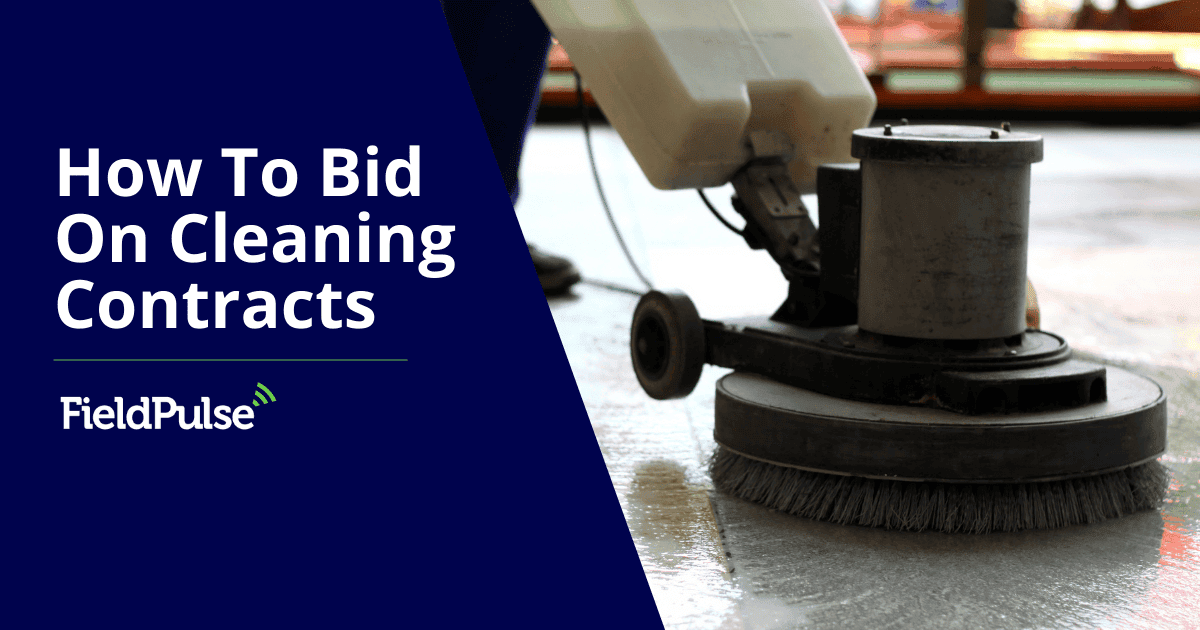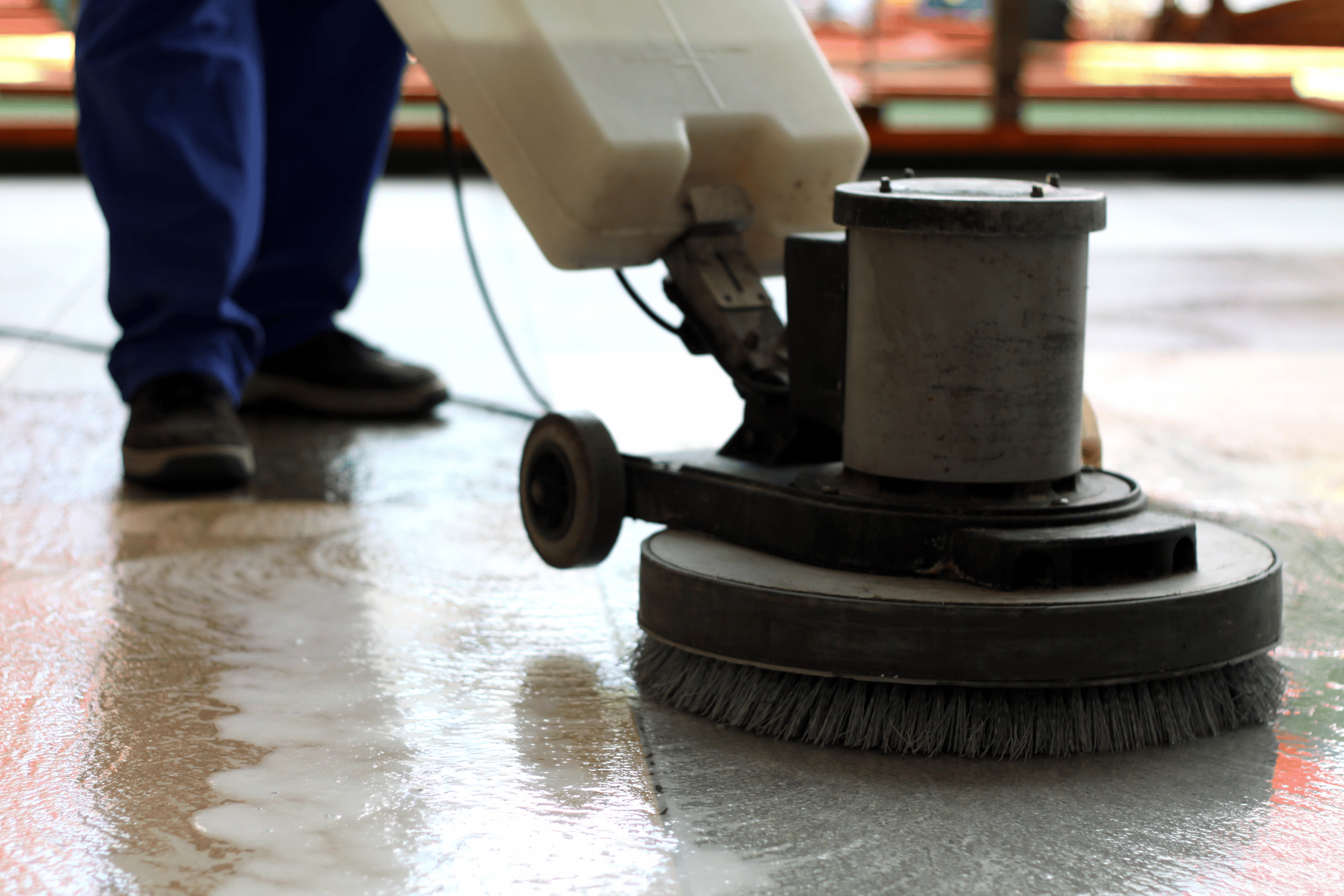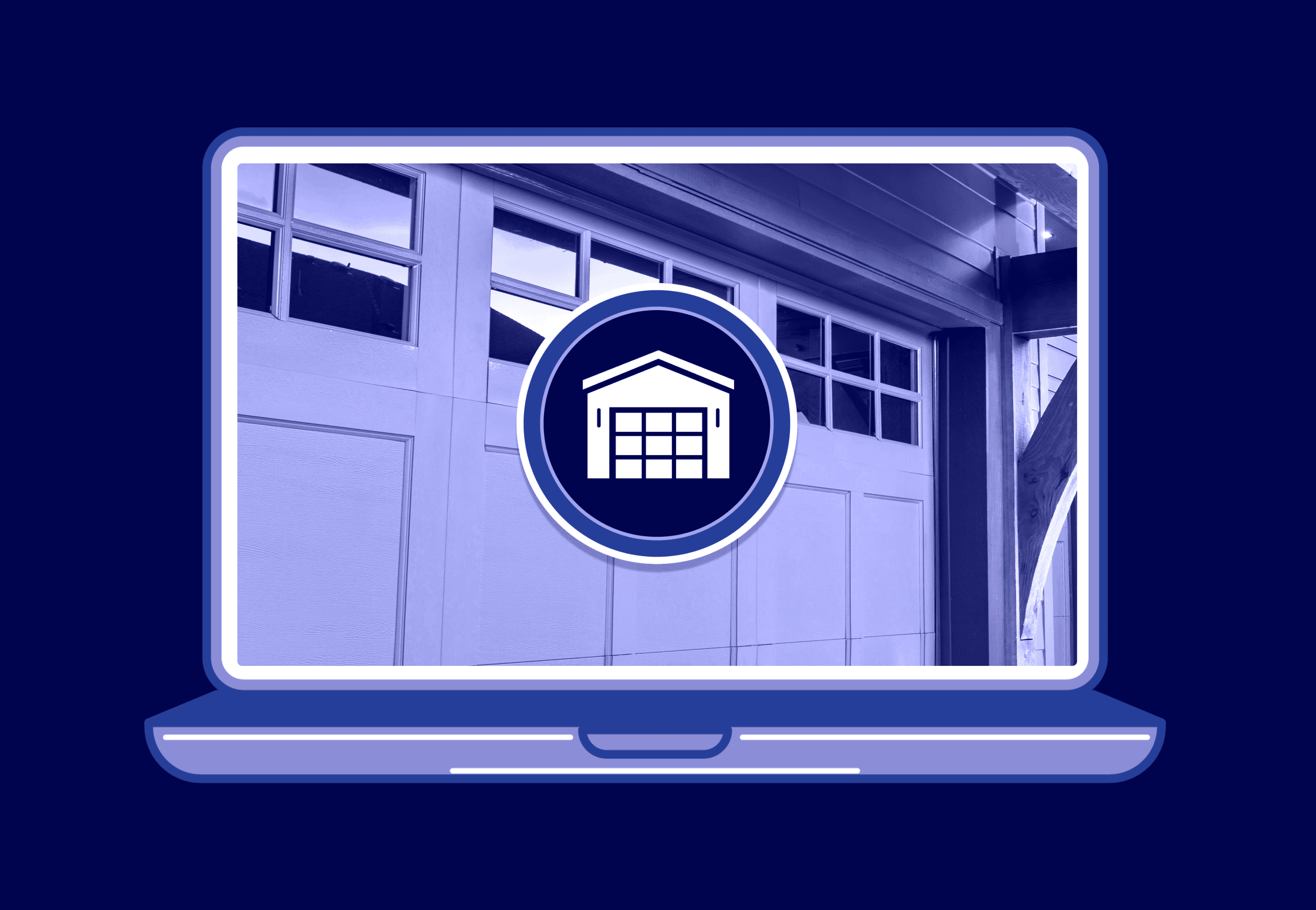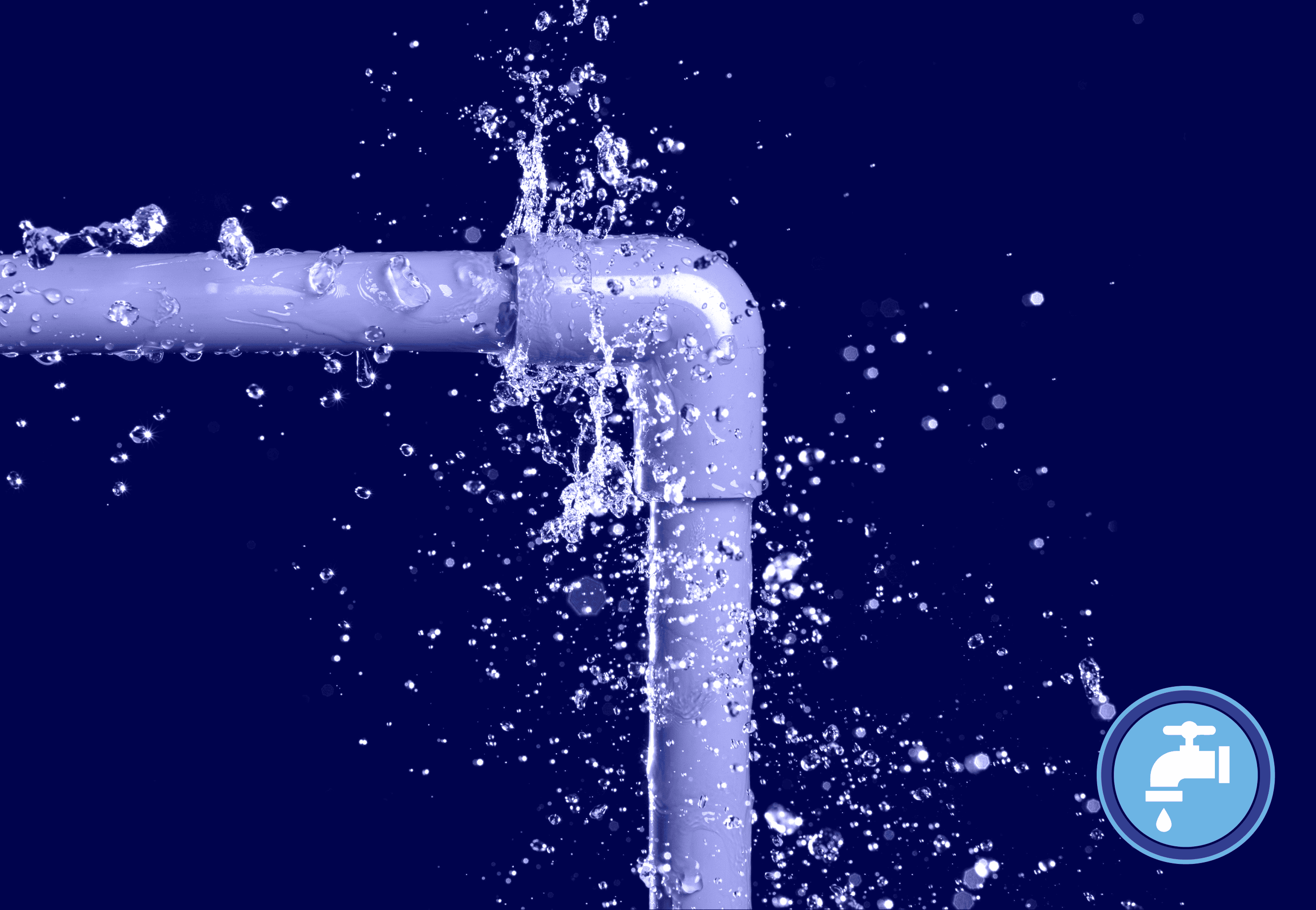How To Bid on Cleaning Contracts
Aug 15, 2024

Even with the proper tools, supplies, and staff on-hand, cleaning business operators may have a hard time securing jobs with insufficient quoting and contract bidding practices. Without the right quoting approach, potential clients can be quickly encouraged to move on to the next best option, potentially leaving your business with lost clients and lost profits.
From laying out your cleaning contract bid to individually pricing your services, there are quite a few practices cleaning business owners must adopt for an effective quoting process. Keep reading to learn more about the various components of a service quote and the factors you’ll need to master to win that next job.
How to Write a Bid for a Cleaning Job Contract
Thoroughly understanding how to effectively construct and deliver a bid for a government or commercial cleaning contract can be one of the most essential steps you take when operating a cleaning business. Between understanding full client expectations and calculating total cost, take a look at these best practices.
Find out the client’s expectations
First things first, a strong cleaning business quoting process will begin by assessing a potential client’s expectations. Before constructing your quote, be sure to ask a few questions regarding their desires, such as the type of cleaning they’re looking for and the approximate amount of space to be cleaned.
Likewise, be sure to ask specific questions that can impact pricing, including whether or not they will provide supplies or any special equipment. Plus, inquire about the number of days per week they expect your services.
Survey the space
With a general understanding of the client’s expectations, your next step is to complete a personal survey of the space. In order to create the most accurate quote possible, your property walkthrough should assess factors such as the flooring type, the number of lighting fixtures and windows, and any specific areas that could require special services.
Depending on the size of the property you’re constructing a quote for, consider taking photographs throughout your walkthrough. You can’t expect to remember each detail that can influence final pricing in a building the size of a school or corporate office, so photos are valuable when laying out your bid.
Calculate cleanable square footage
For most cleaning service operations, a client quote is heavily based on the calculation of square footage for the location. In instances where a property tour is not possible, attempt to complete a request for proposal (RFP). This document commonly produced by larger commercial clients can outline various property details, including the square footage to be cleaned.
Cleanable square footage is the estimated amount of space that will need to be cleaned, such as offices and restrooms, not including spaces that won’t require cleaning, such as closets or corporate server rooms. With a cleanable square footage measurement on hand, you can better calculate the overall quote.
On average, cleaning companies will charge anywhere from $0.05 to $0.25 per cleanable square foot depending on industry experience, materials needed, property type, and any additional special requests.
Cost of materials
With any commercial cleaning business comes the need for numerous tools and supplies. From industrial-sized automatic floor scrubbers to a simple mop and broom, ensure you understand what supplies will need to be purchased and which will be provided to you by the property.
Using your ongoing assessment data and client request details, write down every single tool and supply type you’ll need to complete each daily job along with the accompanying quantities. Consider cleaning supplies and tools, heavy machinery, cleaning chemicals, and PPE (personal protective equipment), and tie in these costs to your overall cleaning rate.
Calculate staffing and time requirements
Whether you’re a single-person operation or a five-person cleaning team, your proposed cleaning contract bid must reflect all labor costs and the accompanying time requirements. On average, the typical hourly rate of a commercial cleaner is $12.00 to $18.00 an hour, depending on local pay averages and combined experience.
Based on the specific number of workers and the amount of time required to complete each daily job, tie these numbers into your overall price to ensure a profit and fair staff payment.

Decide how to charge
As a cleaning business owner, you have the choice to either price your services by the hour or by the job. When pricing by the hour, be sure to gain an estimate of how long it will take you and your team to clean each required component of the property. You can create general average references, such as 45 minutes for a bathroom or 2 hours for a large office space, to use when calculating your total cost estimate.
Charging by the hour can sometimes be unsettling to customers, as they won’t understand the complete cost until the job is done. On the other hand, charging by the job allows clients to know the job cost even before agreeing to your services. You can use an hourly average to create your per job price, but remember to add a markup to each quote to ensure you see profits.
For more details on how to charge for your cleaning services, check out our pricing guide .
Calculate final cost
With all of the above details, you should be able to provide a final cost to your customer. For the protection of your cleaning company, it’s always important to add a buffer for unforeseen costs in the event that the job requirements exceed the original expectations. The same can be said for ensuring profit, so be sure to calculate a profit margin you are comfortable using and tie this into your final project price.
If you are just getting started with the operation of a cleaning business, ensure you are also completing local competition research with some of your quoted prices. A quick local search against other cleaning businesses can help you better evaluate if you are under- or overvaluing your services.
Other Factors that Affect Your Cleaning Contract Bid
Not every cleaning contract bid can be smooth sailing. In certain instances, you may face unique circumstances that can impact the overall price and layout of your cleaning agreement. Here are a few to consider.
Should I undercut my usual price?
Sometimes, a cleaner may be faced with the request to undercut their usual pricing. Before hopping in and agreeing to a lower rate, a cleaning business must consider job factors, including:
- The level of competition for the job
- The potential for ongoing future work
- The current and expected future value of the client business relationship
- The level of business stability and one’s ability to decline a job
After addressing each of these bidding factors, business owners can make the safe decision to either accept a reduced rate or decline the job as a whole. While you should strive to make the customer happy, it’s essential you protect the stability and profits of your business first.
What happens if they request more work and more expenses arise?
It’s common for businesses to encounter requests for more work and new cleaning tasks once operating on an established cleaning service agreement. While this is great for any business, more work can entail additional expenses — including the need for more cleaning supplies and enhanced staff assistance that can impact your total profit.
To support ongoing customer satisfaction and still protect business profits, insert a notice in your cleaning contract agreement stating that in the event of additional services made by the client, cost updates must be made to reflect such changes in the current scope of work.
Do I need cleaning business insurance?
In the event of a legal debacle or unexpected work-related injury, you may want to consider purchasing certain insurance types that offer various protections. General liability insurance protects a business in the event that a client or client’s customer is injured as a result of your work. For instance, a client could possibly sue you for damages after a slip and fall caused by staff mistakenly forgetting to place a wet floor sign.
For cleaning business owners who run a team of cleaners, you will also be required to purchase workers’ compensation insurance. In the event that an employee suffers illness or injury while on the job, workers’ compensation insurance can help cover employee medical bills, lost wages, and legal costs in the event of a lawsuit.
What should a cleaning contract include?
Though the pricing of your services is the most crucial component to include in a cleaning service contract, there are a few informational points that must also be included in your agreement. To avoid any operational interruptions and frustrated clients, any information surrounding the services you are to provide should be inserted into your contract, including:
- Business contact information, including name, phone number, email, and office address.
- An itemized list of cleaning services that are to be provided.
- Exact timeline and daily/weekly cadence of cleaning services.
- An itemized list of operational costs including labor, supplies, equipment, and insurance.
Including all of these details creates not only a legal written business agreement but also acts as a reference point for yourself and the customer who’s requesting your cleaning services.

How to secure a residential cleaning job
To obtain different job types, you will need to use different approaches. For residential cleaning jobs, advertise your services locally and through social media to help attract local residential clients. Get out and network to discover local real estate agents that can refer your services to new homeowners looking to freshen up their new place. Remember that a house cleaning job is one of the quickest compared to commercial jobs.
How to secure a commercial cleaning job
To secure larger commercial cleaning jobs and janitorial contracts under big businesses and organizations, the process will often require you to put yourself out there, rather than wait for the opportunity to come to you. Online resources such as janitorialbids.net offer cleaning businesses the opportunity to list their services and janitorial contract bids to attract potential commercial-level jobs.
Also, consider speaking with the maintenance managers of corporate and local colleges to see if they are in need of some cleaning assistance. Commercial budgets are often way higher than residential jobs, so ensure you have your bid development process down pat before moving forward to avoid questions of reliability.
How to secure government cleaning contracts
It’s important for cleaning services to remember the value of obtaining a government contract as well. With a rise in COVID-19 implications, many government agencies and locations are looking to enhance their cleaning protocol and hire new services.
To help win a government contract, secure your Employer Identification Number (EIN) and register your business with Dun and Bradstreet , a service commonly used by agencies to research and inquire about various service partners. Also, register your business with the federal System for Award Management (SAM) , where you can bid on government contracts.
Cleaning Bid Template
Every cleaning job bid will be unique, but having a template to start with is always a good idea, whether it’s one you’ve created yourself or a sample version produced by another. Visit our Business Playbook template library to access our sample templates that can be reused and repurposed for years to come.
FieldPulse for Cleaning Businesses
We understand that navigating the cleaning business bidding process can be tricky. Fortunately, the right tools can help streamline your bidding processes, to help you get moving on new contracts more quickly. FieldPulse offers robust job estimation capabilities that help lay out all your project costs, from tools and supplies to the automatic breakdown of cleanable square footage pricing using material and labor costs data. Combine that with our customizable proposal generator, two-way QuickBooks integration, and the ability to edit your bids on the fly, and you’ve got a tool that will help your business achieve rapid growth and make it more efficient at the same time.
To better understand how we can help streamline your cleaning business bidding process, contact FieldPulse and schedule a free demo today. To learn more about FieldPulse’s features designed for cleaning businesses, click here .
How much will you grow?
See how FieldPulse can take your business further.


